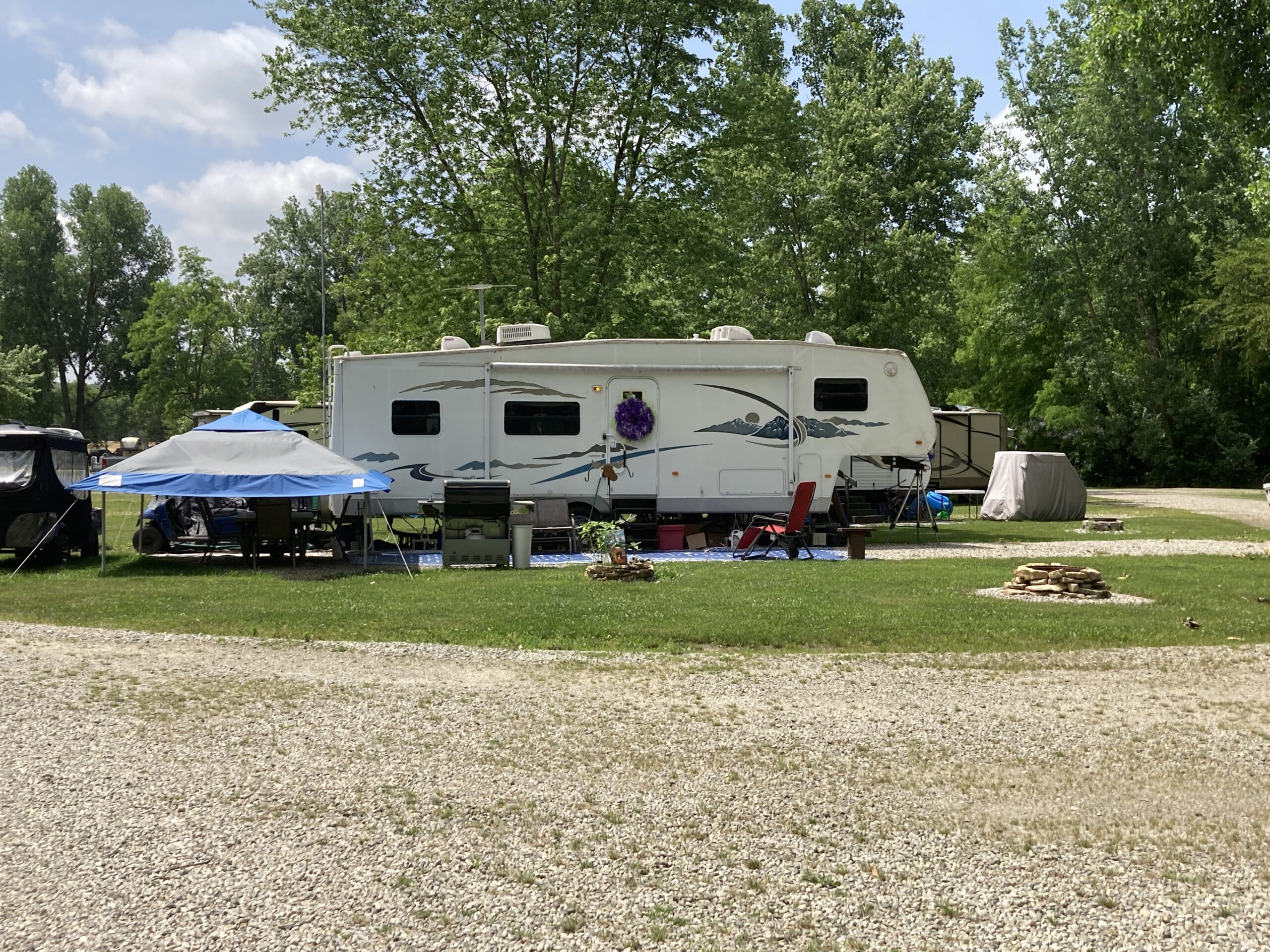Have you enjoyed your 2022 camping season? Unfortunately, October is the last month of the Natural Springs Resort season, and that means it’s time to start winterizing your RV and camping gear so that it will be in tip-top shape for 2023. Once you’re done enjoying the final few weeks of cool weather camping this fall, check out these tips on how to protect your investment by cleaning and winterizing your camping things before putting them into storage.
Why winterizing your RV is important
Living in the Midwest, you probably take steps to winterize your home and your vehicle against the harsh weather elements of winter. Your RV is a home and vehicle in one, and that means that it’s important to protect it from cold weather, especially if you won’t be using it or it will be kept outside. Without taking these winterizing steps, your RV could be susceptible to broken pipes, water damage or electrical failure.
Items you’ll need for winterizing your RV
It will be helpful to have a few basic hand tools, such as a screwdriver or pliers, to remove your drain plugs and install the bypass. You’ll also need non-toxic antifreeze to protect your pipes, cleaning materials for your holding tanks and, if your RV doesn’t already have them installed, a water heater bypass kit and water pump converter kit. There are Winter Readiness Kits available at some RV dealers and on Amazon that can be helpful for first-time RV owners. You may also want to invest in a few pest traps and/or moisture-absorbing packs to keep damaging insects and moisture at bay over the winter.
Cleaning and disconnecting power sources
The first step to winterizing your RV is cleaning the interior and exterior. Remove any food left in the kitchen, and inspect the entire vehicle for any damage you may have sustained during the camping season. Repairing damage now prevents it from getting any worse with disuse and means that you’ll be ready for the 2023 season even quicker. Next, you’ll want to disconnect the batteries, propane and any solar panels. Just like in your regular vehicle, colder weather can ruin your RV’s battery without regular use and potentially damage electric systems.
Removing the water from your RV
It is very important to flush all of the water possible out of your RV to prevent broken pipes or water damage. First, you’ll disconnect any outside water sources. Next, remove and/or bypass any of your water filters so that you can put antifreeze into the system. Drain the holding tanks, and if you don’t have a flushing system then you’ll want to clean them by hand. Then, you’ll turn off the water heater and allow it to cool down before you drain it and your water lines. There are two low point drain lines on your RV for hot and cold water which will help ensure the system is totally empty. Once all water is completely drained, be sure to close up all the drain lines again.
If you don’t have a water heater bypass already, make sure to install one using an external kit because antifreeze can damage the water heater. Your next installation will be the water pump converter kit (or tubing) so that you can pour in the antifreeze. Turn on the water pump, all faucets, and flush the toilet until antifreeze appears. Work your way slowly through the RV, turning on hot and then cold faucets. Once all devices are producing antifreeze, make sure to turn off the water pump. If this process seems intimidating, reach out to a local RV dealer to get a quote on their winterizing packages.
Winterizing your camping gear
Your RV isn’t the only thing that needs to be protected for winter at the end of your camping season. Whether you like to roll up to the campground in an RV or prefer the nostalgia of rustic tent camping, you likely have camping gear that you’ll need to store for a few months before the 2023 season starts. You can clean your tent using a gentle, non-detergent soap and water, along with white vinegar on any mildew/mold spots. Sleeping bags can just be washed in a regular washing machine. Be sure to dry your gear completely before storing it in a dry place with an even temperature.
If you won’t be using your hiking boots over the winter, now is a great time to wash them with water (no soap unless it’s formulated for water-resistant shoes) and treat them for next season. Never place hiking boots in front of a heater/fire, but you can stuff them with newspaper to speed up the drying process. If you have a camping grill, water filters or any other specialized camping/hiking gear, make sure to follow the manufacturer’s recommendations for cleaning and storing.
Although we are sad to see the 2022 camping season come to a close, we can’t wait to plan for next year and all of the fun activities, amenities and events that you’ve come to expect from Natural Springs Resort. If you have any questions about RV storage or the upcoming 2023 season, feel free to contact us online or at (937) 437-5771.






